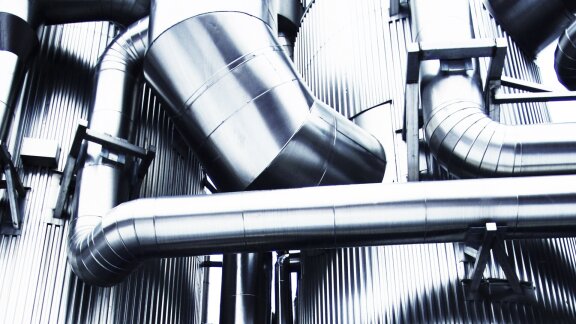Aker Solutions and Partners Aim to Reduce CO2 Transportation and Permanent Storage Costs by 70 Percent
September 7, 2021
The Research Council of Norway has granted around NOK 100 million to support the funding of the development over the next three years. The LINCCS (linking carbon capture and storage) consortium partners will contribute with funding of a similar amount.
The new consortium for the next generation of solutions for carbon transport and storage includes the Aker group related companies Aker Solutions, Cognite, Aize and AGR, as well as Wartsila, OpenGoSim, The Sustainable Energy Catapult Centre, SINTEF, Wintershall Dea, Vår Energi, Lundin in addition to Equinor and TotalEnergies, both among the key owners of the ongoing Northern Lights project in Norway.
The LINCCS research project will look at all the various components and technologies throughout the value chain, and through optimization of the overall systems combined with development of new solutions to reduce costs for future transport and permanent storage systems by 70 percent. The objective is to have solutions ready for the first demonstration projects by end of 2024, and for full scale commercial projects by 2027. The target is to enable the industry to delivery carbon capture at scale. This will simultaneously enable new, profitable business activities for both supply industry and operators.
Aker Solutions is the key contractor for the Northern Lights project, part of the Norwegian government’s Longskip effort, realizing the world’s first full scale shared carbon transport and storage project. Aker Solutions’ scope is complete deliveries of both an onshore facility where CO2 captured from industry plants is intermediately stored, as well as delivery of advanced subsea equipment for injection of the CO2 into subsurface structures beneath the seabed for permanent storage.
“Aker Solutions’ is a leading expert on both overall system designs in the initial phase, and subsequently integrating a range of technologies and solutions into delivery of a complete facility. With this role, we will be a key part in the new development project, and we will leverage the learnings from Northern Lights together with the consortium partners. Aker Solutions is already receiving enquiries from new customers who recognize the world leading solutions for subsea systems for CO2 injection and the proven solutions from Northern Lights," said Kjetel Digre, chief executive officer of Aker Solutions.
The international society, individual nations and leading companies have established strategies to reduce CO2 emissions and to meet climate objectives. The consortium partners have high ambitions for how new and improved solutions may enable these efforts to protect climate and environment, and simultaneously develop sustainable industrial opportunities. The ambition is that the new solutions will enable new projects that can facilitate the storage of 100 million metric tons of CO2 emissions, equal to twice Norway’s annual CO2 emissions. This activity may create opportunities for around 1,000 industry jobs for the participating companies within areas such as engineering, construction and maintenance.
"The project will be an important addition to Equinor’s R&D portfolio within CCS. Together with learnings from operations and development of previous and current CCS projects, the project will add to cost removal and increased deployment of CO2 storage on the NCS," said Elisabeth Birkeland, vice president CCS and low carbon solutions technology in Equinor.
One of Europe's largest independent research institutes, SINTEF has decades of experience bridging the gap between academic research and practical industrial solutions. The institute believes this initiative will take the long-standing cooperation between industry and research communities throughout Norway to a new level.
"LINCCS will build on the collaborative foundations laid by the Norwegian Carbon Capture and Low Emission research centers," said Mona Mølnvik, NCCS Centre Director and Research Director at SINTEF Energy Research.
ENDS